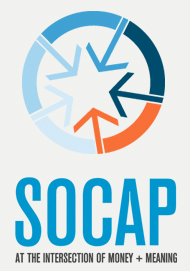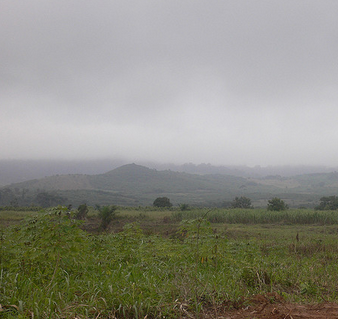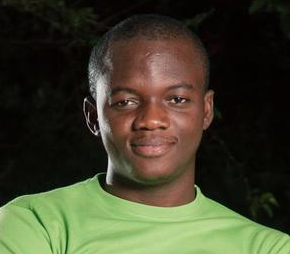What part of the operating system for the good economy is already in software? What apps could be integrated for good effect, to build out the pieces of the systemic change we need in order to create a world in which my grandkids can thrive?
We’ve got a Frontier Market Scouts intern out of the Monterey Institute of International Studies who is looking at just that question. We hope to have some answers, and a map of the existing online operating system, as well as the gaps and tools needed for the Good Economy OS by the time we get to SOCAP13 in early September.
The map will be a guide to the online and mobile portion of a much larger project: the Biocultural Resilience Tool.

We’re going to explore using Farmerline as the messaging backbone for the Biocultural Resilience Tool. For Alloysius Attah – the Farmerline tech entrepreneur from a Ghanaian farming family – and his team, this experiment is an opportunity to enter new markets and potentially scale quickly. Read some of his take on the tool.
Farmerline is a mobile management and market advisory tool initially built by Attah and his team to help the mostly women Tilapia farmers know which markets have better prices. It also now gives them usable nuggets of information that help them reduce shrinkage: fish dying or losing weight as they are carried live, in vats, to market in the way aquaculture farmers do all over the world.
From their website: “Our motivation is to contribute to system wide change in the agricultural sector across Africa where smallholder farmers are empowered through technology to adopt new and improved ways of farming in order to increase yield and profit.”
Alloysius and I are going to do a joint blogging series as we explore this partnership, documenting how it’s working for both of us. It’s a pretty interesting partnership: a young African tech entrepreneur providing the baseline technology, with an older space convener from the U.S. with a platform that could widen his opportunities. We will try to be sensitive and responsive to all the power and cultural dynamics as we work on the project together.
What Farmerline has going for it is that it helps people do their jobs, save money, and even make more money. So people like it. In building our Biocultural Resilience Tool – which will debut at SOCAP13 as part of our Oceans theme – we also want to measure impact, and create a due diligence tool for impact investors. But we think any reporting tools needs to emerge from a management tool that helps people do their jobs.
Here’s why: Most impact reporting tools are heavy with friction-filled surveys and such that are designed by funders to keep track of where their money goes and what it does. They are imposed from without and sometimes add little or no value to the entrepreneur, or even sometimes get enterprise off track in order to feed the data need of the funder, whether it’s an impact investor or a foundation.
Funders seldom pay their grantees or investees the extra cost of compiling and reporting on their impact. It’s often an additive cost, imposed from above, without additional value. So, the dirty secret is that few for-profit social enterprises do it very much. Too often, reporting to funders doesn’t help you do your job or accomplish your mission. They are just demands from the funder commonly exercising their interpretation of fiduciary responsibility to track preconceived expected results and accounting, and increasingly with a theory to prove. Donors have no real incentive with which to ask their investees to increase their costs for no real value. But reporting is still important.
So, in building the Biocultural Resilience Tool we have a desire to start the other way. We want to thrill the entrepreneur and satisfy the funder with valuable information that informs decision making. So, we are moving outward from a management tool that helps people do their jobs and helps the business make more money. Then, we want to find a way to add in the essential reporting, that does help an enterprise use metrics, as a guide to successfully make sure they are achieving their social and environmental objectives. We want to do all this while also baking in mission insurance to have an answer to what I call “the Ben and Jerry’s problem,”* looking at what happens to the mission when the visionary founders sell the business.
*(In the case of Ben and Jerry’s, selling meant selling out. Read more.)
What is this tool? Its goal is simple: to enable more indigenous people to hang onto their lands and also enhance their livelihoods; to make life better for people and planet in places of high biodiversity and cultural diversity. Those places have an increased significance elsewhere as our global climate changes; one reason is that they are our storehouse of all the other kinds of grains and vegetables we will need as climate changes around the world. The tool offers a way to demonstrate a business case for investors and entrepreneurs, showcasing how to profit while also building long-term value through taking care of people and planet. Along the way, social and environmental impact is monitored and communicated in ways that add value for entrepreneurs, the people and places they rely on, and the investors that join them.
How will it do that? It will enable planet-focused investors and funders to co-invest or add social investing to what they are already doing. Talking to one of our target customer groups – national park and UNESCO Biosphere Reserve managers – this simple sentence gets them deeply interested: “It’s a tool to help you enhance the livelihoods of people who live around your parks or reserves so that there will be less poaching.”
Working with Attah, we are looking for mobile reporting apps that could integrate with Farmerline, and we are introducing him to friends at companies like LaborVoices, a HUB Ventures, alum that recently got a contract to install their mobile app in 300 Wal-Mart suppliers in Bangalore, India to make sure workers can tell the world about the conditions in which they make our clothes.
Our Frontier Market Scout is also going to look at Indigenous Designs’ Fair Trace Tool and at the mobile poverty metrics tool (Progress out of Poverty Index) from the Grameen Foundation. With an entrepreneur-centric focus, one guiding design principle goal will be to make sure the tools are lightweight, not cumbersome, and can integrate well with the enterprise accomplishing its core mission. We want to help the enterprises achieve economic viability and create what Charly Kleissner calls holistic sustainability: a positive social and environmental impact, accounting for or at least tracking externalities and unintended consequences.
We will also be looking at previous efforts like the Social Entrepreneur API from Social Actions, which has done great foundational work, as well as at the Artha collaborative due diligence platform. Artha’s platform is focused exclusively on India and creates collaborative design for lowering transaction costs of investments appraisal on smaller scale SME deal flow in emerging markets. Artha is currently running a Venture Challenge in India using a ‘matched funds’ approach to help serve as a catalyst for peer impact investors.
This is just the initial story of how Alloysius and our team will work together; we will be delivering progress reports, as well as hosting Google Hangouts, as we move along on this and all the other parts of the Biocultural Resilience Tool. I think it’s going to be really interesting.


